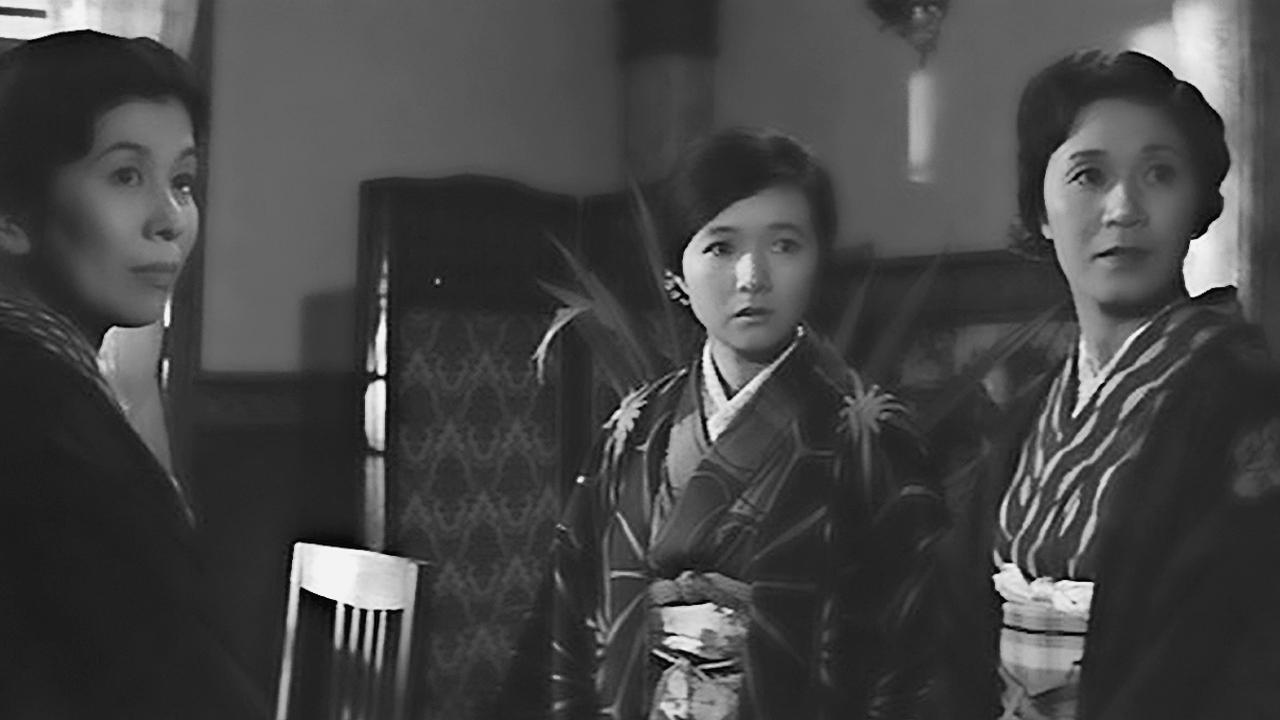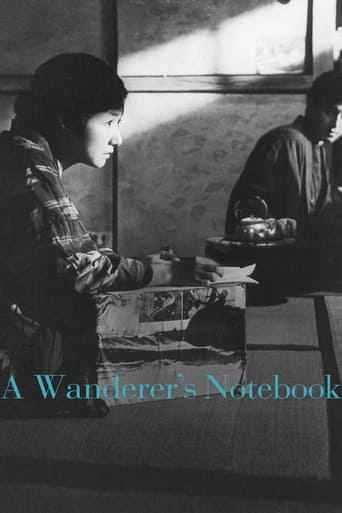PlatinumRead
Just so...so bad
StyleSk8r
At first rather annoying in its heavy emphasis on reenactments, this movie ultimately proves fascinating, simply because the complicated, highly dramatic tale it tells still almost defies belief.
FirstWitch
A movie that not only functions as a solid scarefest but a razor-sharp satire.
Lollivan
It's the kind of movie you'll want to see a second time with someone who hasn't seen it yet, to remember what it was like to watch it for the first time.
galaxywest
How is it possible that Hideko Takamine can transform herself into this character so easily? My answer is that she was, 100%, an actress of heart. (Unlike so many Japanese actors and actresses these days who can only make faces.) And she does great things with her heart. She was by far one of the most talented actresses in the 20th century not only in Japan but anywhere. After playing several of Fumiko Hayashi's characters, Deko-Chan plays Fumiko Hayashi herself in Hourou-ki. And it is amazing to watch. From the beginning of the movie there is a deep sadness on Fumiko's face; and even when she is expressing other emotions in the movie, that sadness is still there in her face — it never goes away. Wow. I think that unlike most actors and actresses Hidoko Takamine can completely transform herself into her character; erase herself completely
barutanseijin
Sometimes films turn out better than the books on which they are based, and sometimes they are even more literary or more adventurous. Then again, in many cases they aren't. Naruse had a good streak of successful adaptations of Hayashi Fumiko works, but this one falls short of the others. Naruse's previous Hayashi adaptations somehow find a poetics within the boredom, frustration, and regrets of marriage, but it doesn't happen here. This is odd considering that Hayashi's "Horoki" is already quite poetic. Takamine's offscreen readings somehow come off wrong and she is constantly overacting. This is strangely out of character for her and Naruse, who were known for their restraint and control. The film ends up as a grab-bag of documentary episodes from Hayashi's life, but the book is much more. Meh.
Red-125
Hourou-ki (1962) was shown at the Gene Siskel Film Center in Chicago with the title Her Lonely Lane. The film was co-produced and directed by Mikio Naruse, and is based on an autobiography written by Fumiko Hayashi. The film stars Hideko Takamine as Fumiko Hayashi.This is the first Naruse film I've seen, and I feel as if I'm starting at the end of a cycle rather than at the beginning. Naruse had adapted several books by Hayashi for the screen, and this was the last. In the same way, Takamine was one of the director's favorite female actors, who had worked with him on several previous films. Under those circumstances, I can only give a general review of the film--I wish I could have seen it in sequence after having seen some of the others.As a director, Naruse reminds me of Ozu. The movie is quiet, and the camera work is unobtrusive. The film is very sad. As portrayed in the movie, Hayashi's childhood and young adulthood were spent in bitter poverty. This is shown as something far beyond low income--Hayashi often doesn't have enough to eat, and has to take a succession of low-end jobs just to have enough money to pay for her meals and to send funds to her equally impoverished parents.It's interesting that the film--and presumably the book--doesn't portray the protagonist as a saint. Hayashi not only makes bad choices, especially in men, but she commits a truly unethical act in order to advance her own literary career.Even at the end, when the older Hayashi is wealthy and famous, she is scarred by the life she left behind. Rather than being portrayed as a kind, benevolent mentor, she is shown as shrewd, bitter, and self-serving. I enjoyed this film, but I struggled somewhat with cultural differences about which I was uncertain, and subtitles which I suspect didn't do justice to the dialog. Even so, it was a privilege to be able to see this rare film and to learn of a new (for me) and highly talented Japanese director.
liehtzu
I saw this film in a horrendous video dub with difficult-to-read subs so I can only recount what I could glean from it. Many of Naruse Mikio's best films were adaptations of books by his favorite author, Hayashi Fumiko ("Lightning" "Late Chrysanthemums" etc.). "A Wanderer's Notebook" (also known as "Lonely Lane" or "Her Lonely Lane") was the final Hayashi film and one of his last before his death in the mid-sixties. Taken from Hayashi's autobiography, it's the story of a cynical, hard as nails female writer living in poverty who falls in love with a real b****rd (the typical unfeeling Japanese man littered throughout Naruse's films), who she knows is a real b****rd but who she somehow cannot pull away from. Hayashi is portrayed superbly by the always amazing Takamine Hideko, who has played the role for Naruse in previous films and who has aged like fine wine. In a way "Her Lonely Lane" feels like it's as much of a swan song for Takamine as it is for Naruse. Never has she played with such restrained bitterness; it's a flawless performance. Unlike "Floating Clouds" she remains alive at the end, a successful author with a large house and a kind husband. Her meeting with a man who loved her in her youth in the garden behind her home is a truly eloquent scene: as she is speaking to him we become aware that old memories still haunt her decades after the fact, though she never says so. It is moments like these in which Naruse's pessimism becomes sublime - Hayashi is aware that her hard-won victories can't stack up against the costs, but the moment is so beautifully melancholic that it seems to transcend the past, if only for an instant.

